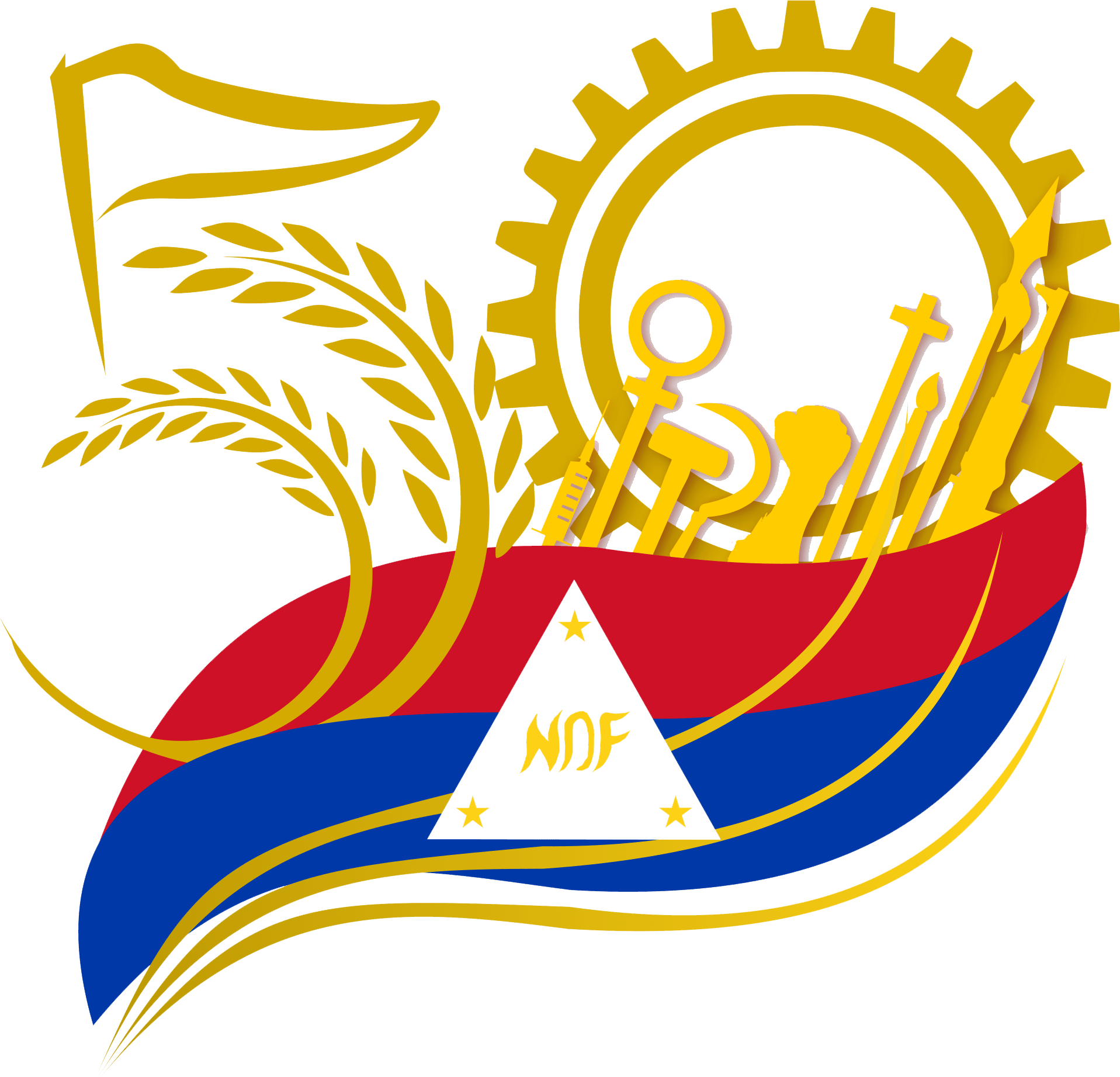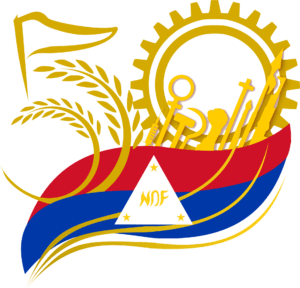A Book Review of Jose Maria Sison’s On the Philosophy of Marxism-Leninism-Maoism
By Prof. Ramon Guillermo I June 20, 2021
It is not a question but an imperative for humanity to struggle and triumph against the capitalist system in the 21stcentury. As in the past, the choice is still “socialism or barbarism”. Imperialist countries hold enough weapons to blow the planet up several hundred times, insatiable corporations gobble up and destroy nature, while the majority of humanity has barely enough to eat and inadequate social services despite the unmeasurable wealth of a few.
What is important is that it is still possible to choose. In the field of philosophy, such an act of choice for an individual is, above all, a matter of how one chooses to exist or not exist in the world. This is an “ethics”.
Nevertheless, it could be said that the status of ethics (understood as “morality”) in the theoretical framework of classical Marxism is rather complicated. Firstly, any Marxist knows that whatever “morality” it is, it cannot be separated from a particular historical stage, existing superstructure, and class interest. Marxism’s critique of the so-called universality or what is bandied about as eternality of the ethical system had been powerful. On the other hand, however, the ethical standpoint and moral sentiments of Marx and Engels are vivid and striking in all their writings, even in the most theoretical ones. In his “Critique of The Gotha Programme” (1875), Marx did not reject morality or ethics per se, he only rejected an ethics which continued to be confined and bounded within the horizon of bourgeois society. Therefore, what is needed is an ethics that will transcend these boundaries.
Transcending these limits is an open question and ongoing project on the part of the movements which are immersed in the living practice of emancipation.
Due to the complicated nature of this matter, problematic views on ethics have surfaced even within revolutionary movements. First is the one-sided right error that almost exclusively foregrounds the moral aspect of the writings of Marx and Engels. In this way, the structural analysis of capitalism and the critique of political economy which could be said to constitute the greatest and most original contributions of Marx and Engels were set aside and occluded. Although sometimes well intentioned, this direction succumbs to the illusions of non-critical humanistic universalism criticized by Jose Maria Sison (JMSO in his book (111). Second is the left error that completely dismisses ethical considerations as “bourgeois” in essence and regards such reflections as major obstacles or deterrent to ultra-sectarian and super-left actions which allegedly do not recognize any humane or inhumane boundaries.
Another problem is the source of what Engels called in Anti-Duhring (1878) “proletarian ethics” or morality. If this can indeed be considered “philosophy”, what can be its sources as a philosophy? Can it be framed exclusively by academic philosophers based on the rich traditions of Western philosophy (or even including the great Asian traditions)? On the one hand, although there may be a certain grudging and limited appreciation of Marx, bourgeois academia really does not recognize the contributions of Engels, Lenin, Stalin, and Mao to philosophy. They are not considered acceptable, even as mere topics in the history of philosophy of the 20th century. However, it is true that there are some academic philosophers who have achieved some degree of fame and who claim for themselves the label Marxist (or even Maoist) while engaging in combat in the philosophical field in their respective countries such as Germany, France, or USA. Can they be considered as the main sources of inspiration in the development of proletarian ethics (if they are interested in it at all) in the Philippines? (This is not to say that they cannot be sources at all, the only question is whether they can be the main sources of this kind of philosophy?) This is an even bigger problem for the Philippines which cannot be considered a country that places too much importance on philosophy or on being philosophical. In fact, the revolutionary movement in the Philippines is one of the extraordinary social institutions in the Philippines that gives importance to the study of philosophy and its popularization among the workers and peasants. It is true that much more needs to be rectified and developed in this line of work but it is clear that the philosophy of the revolutionary movement cannot be ranged along with academic philosophies. It has nothing to do with the emergence and passing of various fashions or obsessions in academic philosophy. It doesn’t keep up and it’s only right that it doesn’t keep up. It has its own time, meaning, and purpose.
In this regard, Mao’s call that activists seeking to study philosophy must immerse themselves and live with the masses and participate in various campaigns, struggles, and class struggles must be taken seriously (“Interview on the Some Question of Philosophy, ”18 Aug. 1964). The materialism of the movement, if it has any significance, is not a speculative materialism but a practical and emancipatory materialism in the sense given by Lenin and even Bertolt Brecht. The ethics of the revolutionary movement is not an abstract ethics but an ethics formed and shaped by revolutionary practice.
The call to put in practice, enrich, and develop “proletarian ethics” or morality (369) in the midst of current struggles, and even of “socialist morality” (319) during the building of socialism in the future, is quite clear from JMS’s philosophical writings.This theme is prominent, above all, in his appreciation of the category “non-antagonistic contradiction” (fēi duìkàng xìng de máodùn) which was originally proposed by Soviet philosophers in the 1930s but for which Mao gave the most correct elaboration. On the other hand, Adorno’s contemptuous and cynical allusion to this category, in one of his writings, as an example of the “pretentious intelligence” (ausgeklügelt) of the Chinese, is typical of the academic philosophical point of view, even though it could only have been won through the rich revolutionary experience of hundreds of millions of people, who just happened to be non-Europeans.
In fact, if there is one work by Mao which embodies practical philosophy and can be said to have had a profound effect on the practice of the Maoists in the Philippines, it is the essay “On the Proper Handling of Contradictions among the People” (1956). The interview with JMS in which he provides an analysis and commentary on this essay by Mao is important (413). This essay by Mao spread on an international level as part of a small collection entitled “Five Essays on Philosophy” (1977) which also contained the famous essays “On Practice” (1937) and “On Contradiction” (1937).)
JMS agrees with Mao’s emphasis that in many instances non-antagonistic methods of resolving contradictions among the people such as discussion, reasoning, persuasion, and education may prevail (414). Social contradictions need to be properly handled to avoid mistakes and excesses. In any event, such mistakes should immediately be corrected and the names of the accused should be cleared (417). Rectification includes criticism and self-criticism to avoid the repetition of such mistakes as much as possible (438). Furthermore, anyone suspected of engaging in criminal activities in socialist society must go through due process and must be strictly based on evidence (416-417). JMS also underlined the need to learn from Stalin’s mistake of declaring the abolition of classes in the USSR in 1936 which led to errors in the method of handling antagonistic and non-antagonistic contradictions within Soviet society (333). It can be seen from the foregoing that the category of “non-antagonistic” contradiction is deeply involved in the formation of the proletarian ethic of how to deal with others, unite and struggle with them, in a class society.
In this regard, it is interesting that JMS thinks, in his call for dialogue between the Christian, bourgeois-liberal, and proletarian ethical systems, that these may have common aspects which can be the basis of such dialogue. Also, it is intriguing that he thinks, along with Engels, that although these three systems may not claim to be eternal, “proletarian morality” may contain the most elements which are “lasting” if not “permanent” (369).
It can be seen that proletarian ethics, in JMS’s definition, draws rich lessons, both in terms of their successes and failures, from past revolutionary experiences in the former USSR, China, Vietnam, Indonesia, Cuba, and of other positive movements in the world. It is clear that the science of political economy and proletarian ethics do not stand in contradiction with each other. The critique of political economy has an ethical basis, while proletarian ethics, for its part, is based on political economy. Engels did not allude to the emergence of the “proletarian morality of the future” as a mere turn of phrase. Proletarian ethics emerges in the midst of class struggle. It is not only the result of the revolution at its end but develops and takes shape in the midst and in the process of the revolution itself.
(Translated from the original Filipino.)

